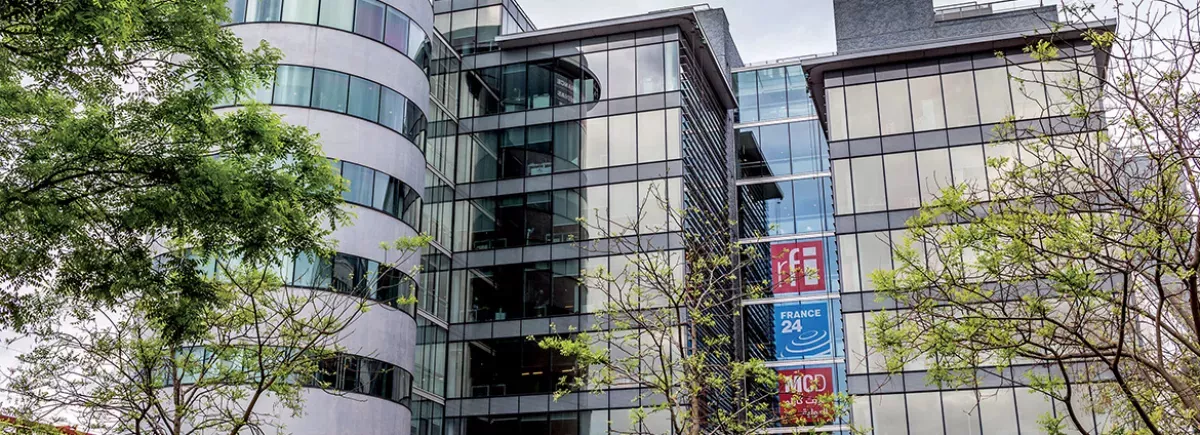
Five Burmese journalists trained in Paris in filming and editing techniques
Related project
KwanraatLaunched in 2022 by CFI and FMM with support from the French Ministry of Europe and Foreign Affairs, the Kwanraat (“network” in Burmese) project aims to support Burmese journalists in exile in their efforts to fight for freedom of expression and promote their country’s return to democracy, via programmes to strengthen their skills and a joint information production project.
As part of the project, five refugee journalists living in cities across Europe (Marseille, London, Berlin) received training between 19 and 22 July at the FMM offices to learn the professional codes of audio-visual media. The journalists, the majority of whom had no experience before the coup d’etat, started working with independent media to relate what was happening in the country, as often and in as much detail as possible. However, many of them had very little or no professional training. They therefore received training in filming and video editing techniques, as well as editorial issues and the best ways to transmit documented, hard-hitting information. Fact-checking, a crucial tool when reporting on armed conflicts, was also covered.
As a final particularly important focal point, especially in the context of Myanmar in which all communications may be monitored, the journalists were able to take part in a dedicated digital security session to enable them to identify cyber threats and learn how to use the various data protection and encryption tools.
Lastly, the journalists had the opportunity to talk to a psychologist, having all experienced traumatic events since the start of the civil war, in both their personal lives and their work as journalists. In the first part, they discussed their experience of the civil war as individuals, with questions asked about being in hiding and being uprooted. In the second part, the journalists were able to open up about the difficulties and traumas experienced as journalists, the risk of getting emotionally caught up in the events covered or of not having enough professional distance to make logical editorial choices.
“This training session was very encouraging, I started to forget Myanmar, and now Myanmar remembers me,” says one of the participants. Another highlighted the fact that she had learned what professional journalism means and how professional journalists work.
Another session is planned for October to reinforce what participants have learned. In the meantime, they will also be offered support to continue working on their journalistic projects using the knowledge and techniques covered during the training sessions.


